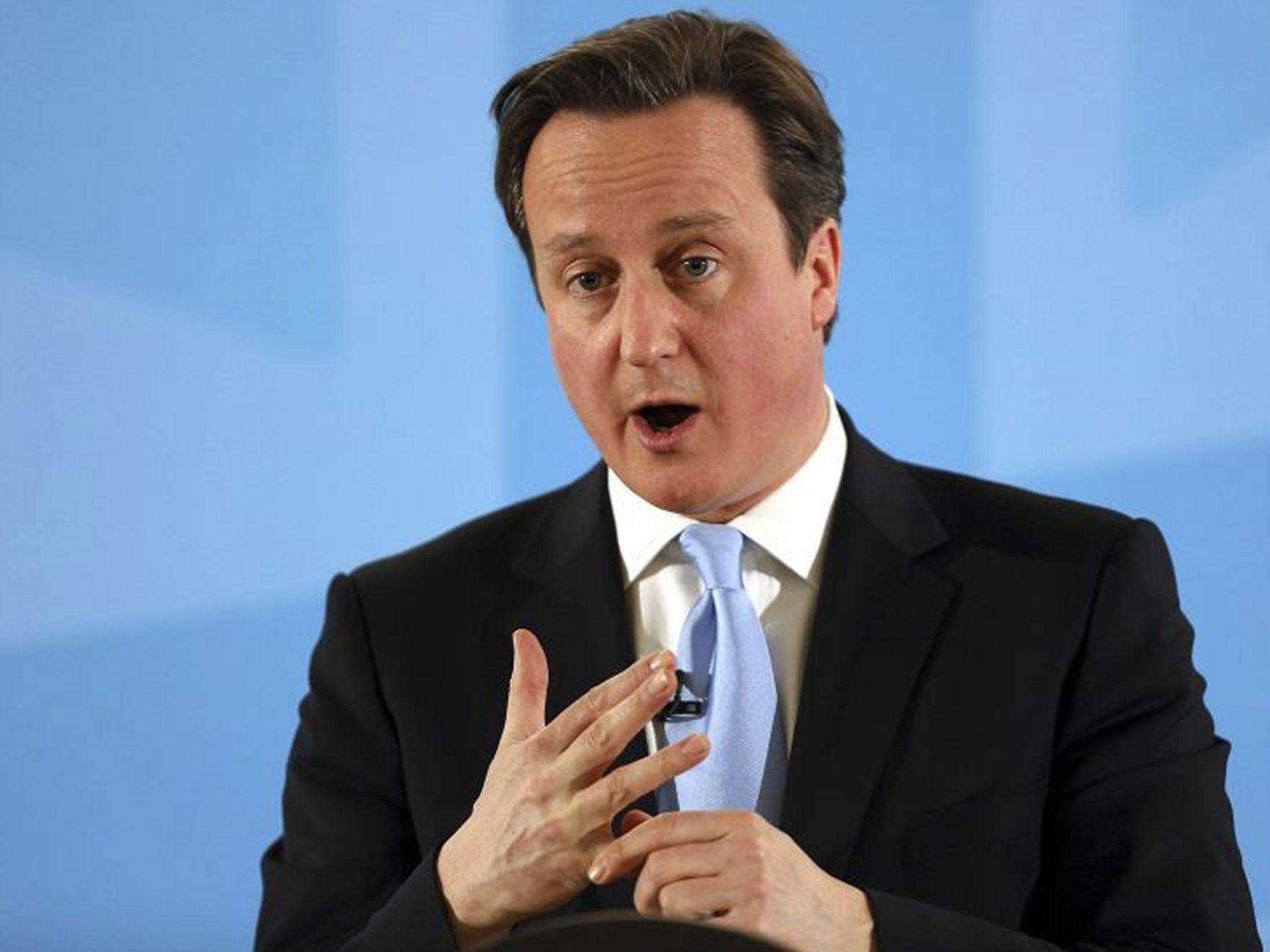David Cameron’s big problem is that he has been listening to the wrong people
The Prime Minister is whistling Ukip’s tune while Britain craves a statesman

Your support helps us to tell the story
From reproductive rights to climate change to Big Tech, The Independent is on the ground when the story is developing. Whether it's investigating the financials of Elon Musk's pro-Trump PAC or producing our latest documentary, 'The A Word', which shines a light on the American women fighting for reproductive rights, we know how important it is to parse out the facts from the messaging.
At such a critical moment in US history, we need reporters on the ground. Your donation allows us to keep sending journalists to speak to both sides of the story.
The Independent is trusted by Americans across the entire political spectrum. And unlike many other quality news outlets, we choose not to lock Americans out of our reporting and analysis with paywalls. We believe quality journalism should be available to everyone, paid for by those who can afford it.
Your support makes all the difference.Much is riding on the Prime Minister’s immigration speech. It might be a bridge too far for our partners in Europe; it could disappoint the very people it was meant to impress and lead to further spikes for Ukip in the polls. David Cameron’s problem is that he has been listening to the wrong people. As a result, under his stewardship the Coalition, led by a party beset with defections and backbench revolts, has been getting the tone of its interventions consistently wrong.
Plucking a policy, a deadline and a figure out of thin air, Cameron foolishly promised to cap net migration to the tens of thousands by the end of this parliament, “no ifs, no buts”.
He ignored the findings of his own EU auditing exercise, the Balance of Competence Review, that is looking at the impact of EU membership sector by sector and which showed that EU migration is, on balance, a net benefit to Britain, with no evidence of large-scale “benefit tourism”. He has angered Britain’s Eastern European allies by allowing their citizens to be casually smeared in the British press without a murmur of disapproval. He has antagonised Western European allies by hinting that an opt-out from freedom of movement is now – all of a sudden – the UK’s renegotiation benchmark. But it all comes back to this initial, fundamental mistake: Cameron has allowed Ukip to frame the terms of the debate.
Ukip is not interested in solving the problems experienced by ordinary people. It has no answers to the shortage of affordable housing, crowded GP surgeries, or workers paid less than the minimum wage. Nor does it have anything to say about the skills gaps hindering our manufacturing sector or the labour shortages crippling our NHS. It will never have to worry about funding the shortfall of those lost EU migrants’ tax receipts (a net contribution standing at £22bn in the last 10 years).
Combining the advantages that immigration brings with measures to resolve the core problems affecting some communities is not what Ukip wants. Its aim is to drag the UK out of Europe using public concern about EU migration as a kind of reverse Trojan horse.
It has successfully pushed Cameron into a perverse negotiating position where the definition of “success” involves a UK exit.
We have come to expect such tactics from Ukip. It stirs up fear and disharmony to drown out the pragmatic, economic and diplomatic case in favour of staying in the EU. But we are entitled to expect much more from our Prime Minister, the man representing our country on the international stage and negotiating on our behalf.
The country craves the leadership of a statesman. Mr Cameron should leave the divisive, abrasive rhetoric to Ukip while he builds the alliances that will improve rather than diminish our standing in Europe and help to achieve the reform that Britain needs.
Alan Johnson was Home Secretary from 2009 to 2010
Join our commenting forum
Join thought-provoking conversations, follow other Independent readers and see their replies
Comments